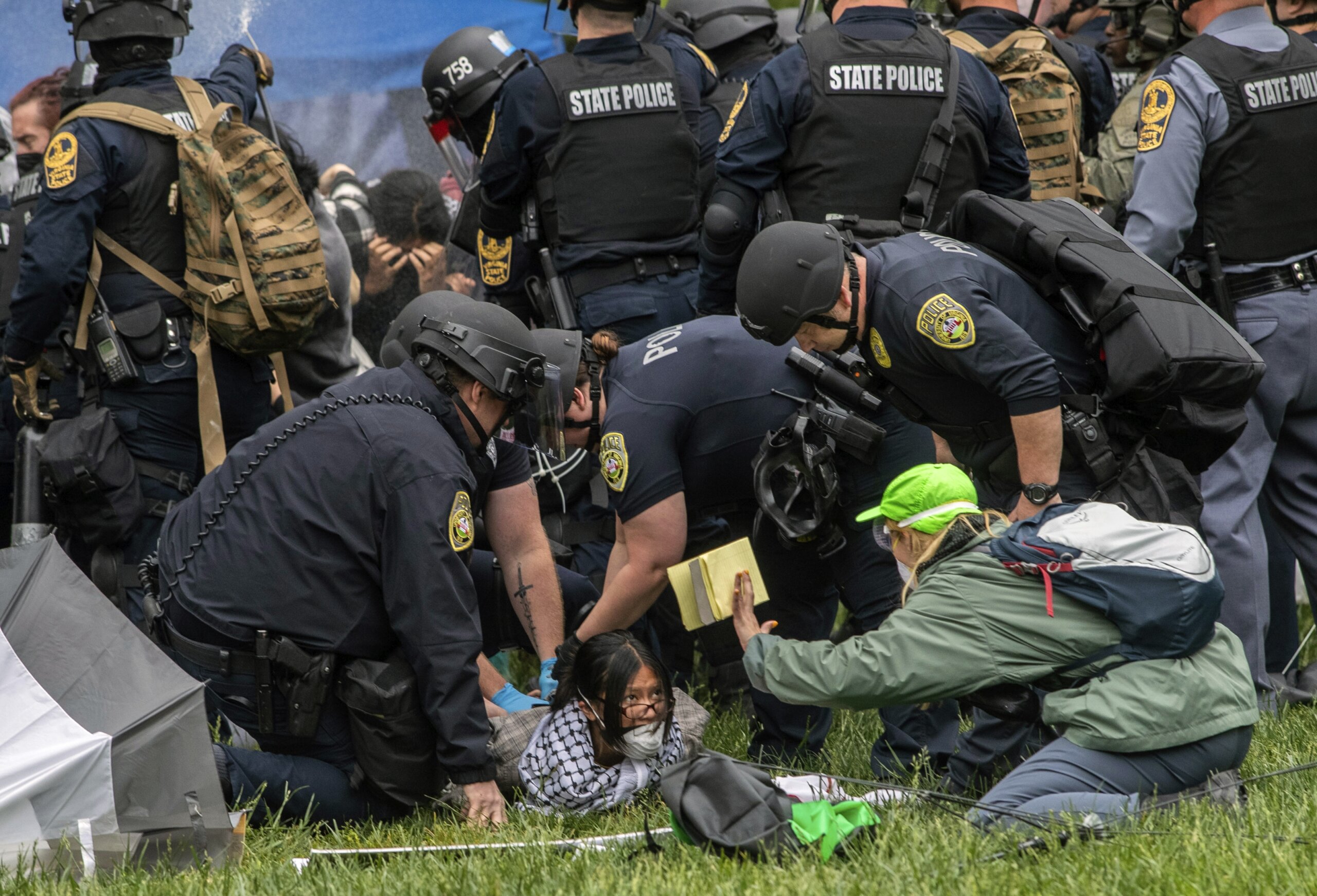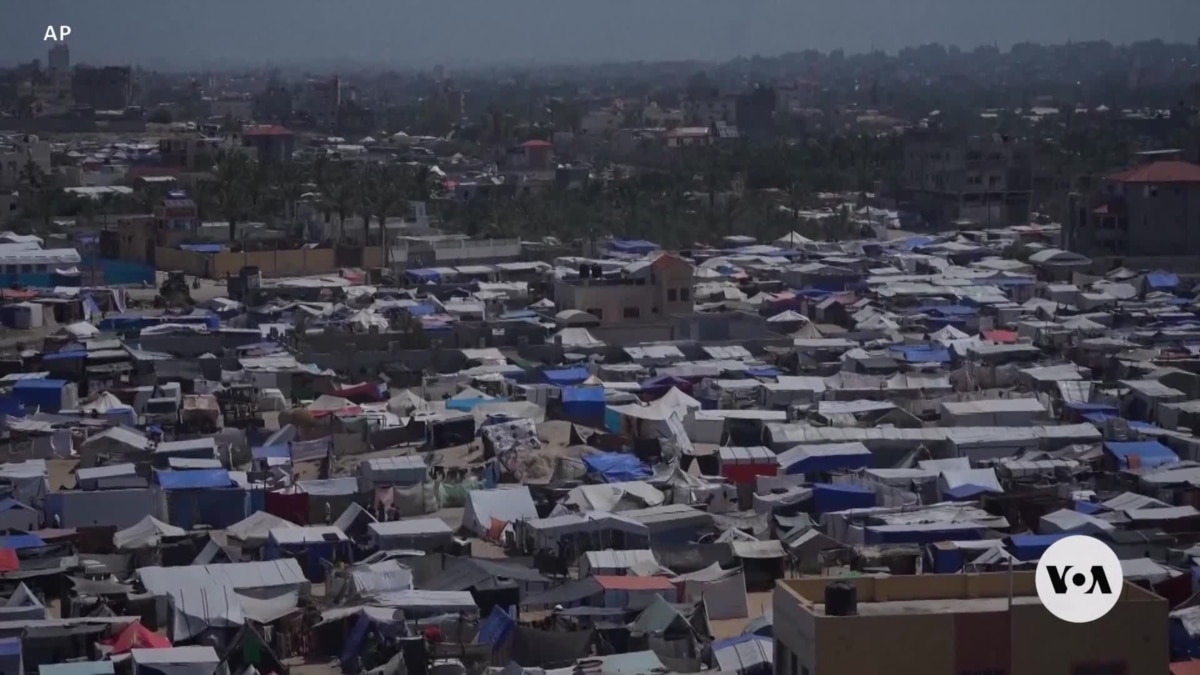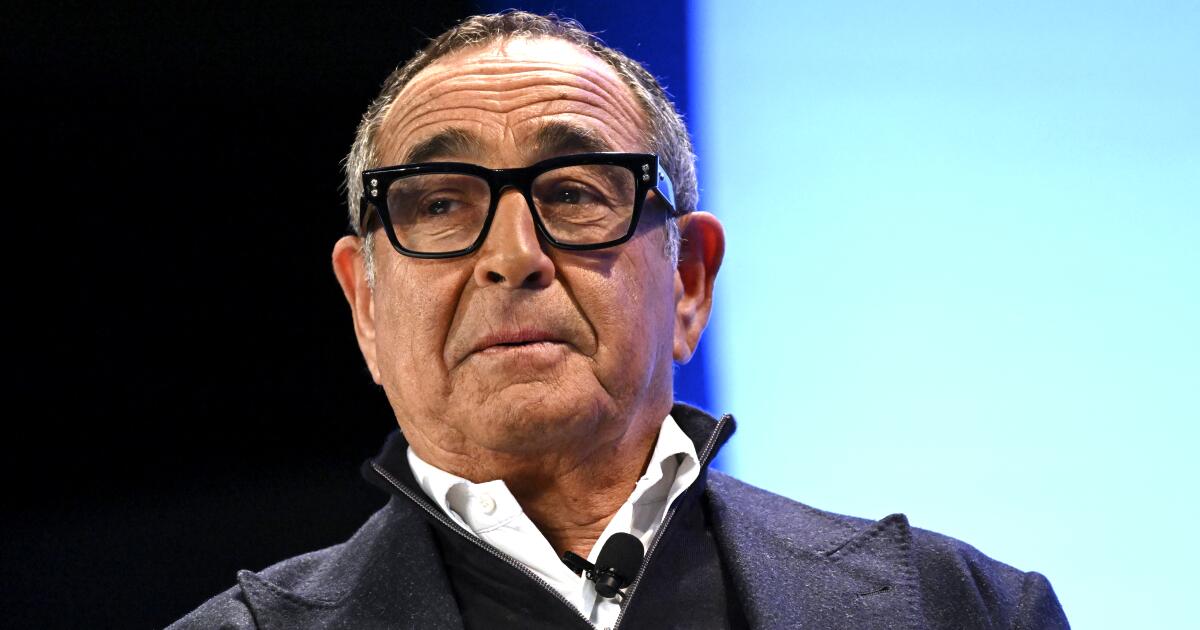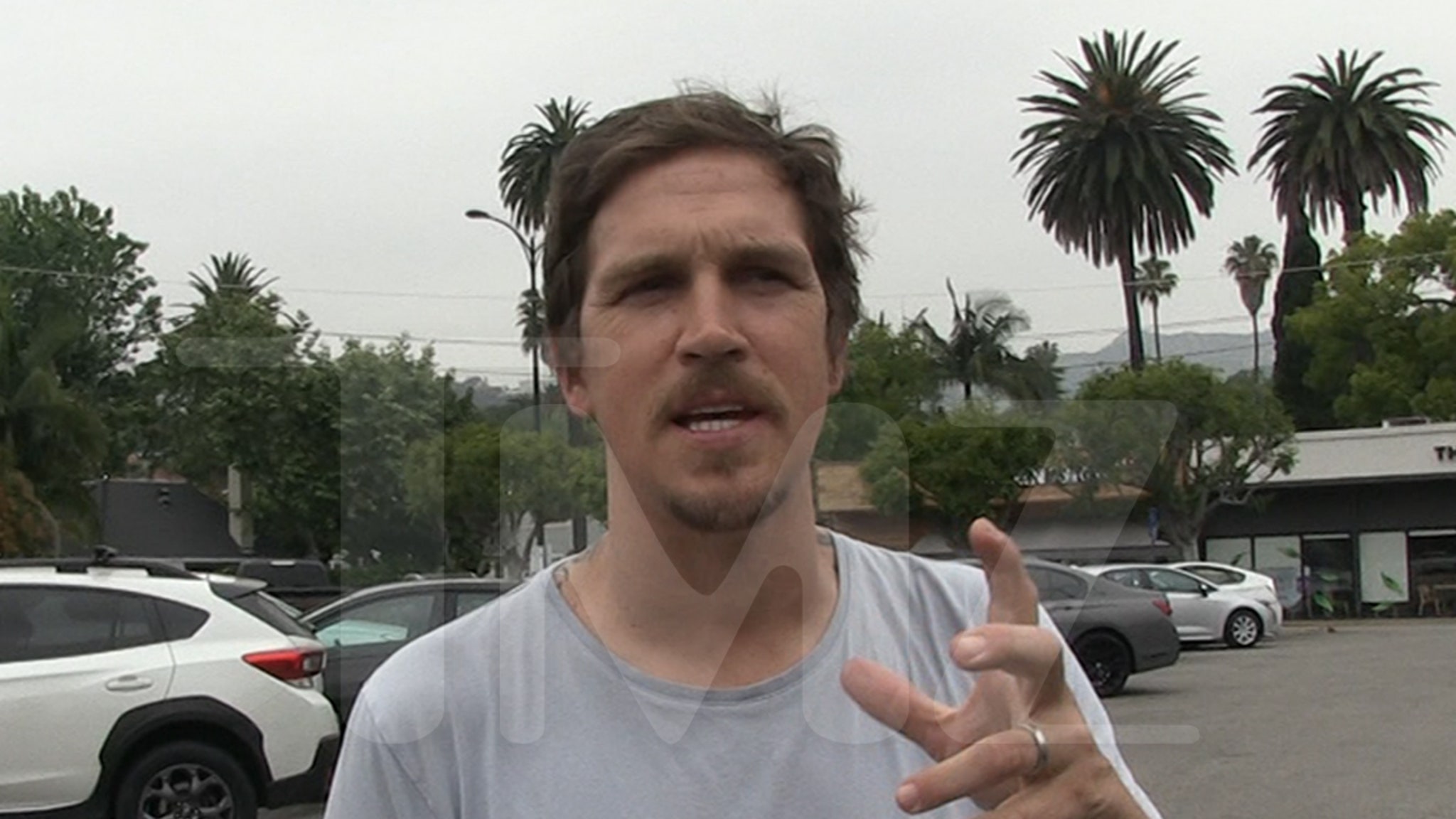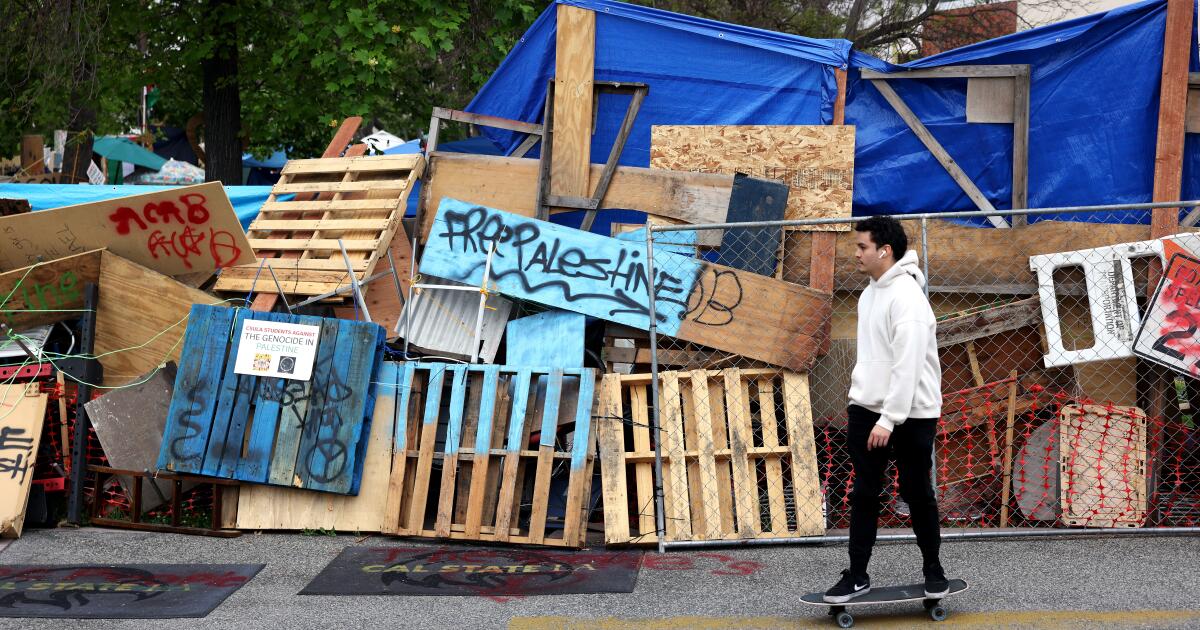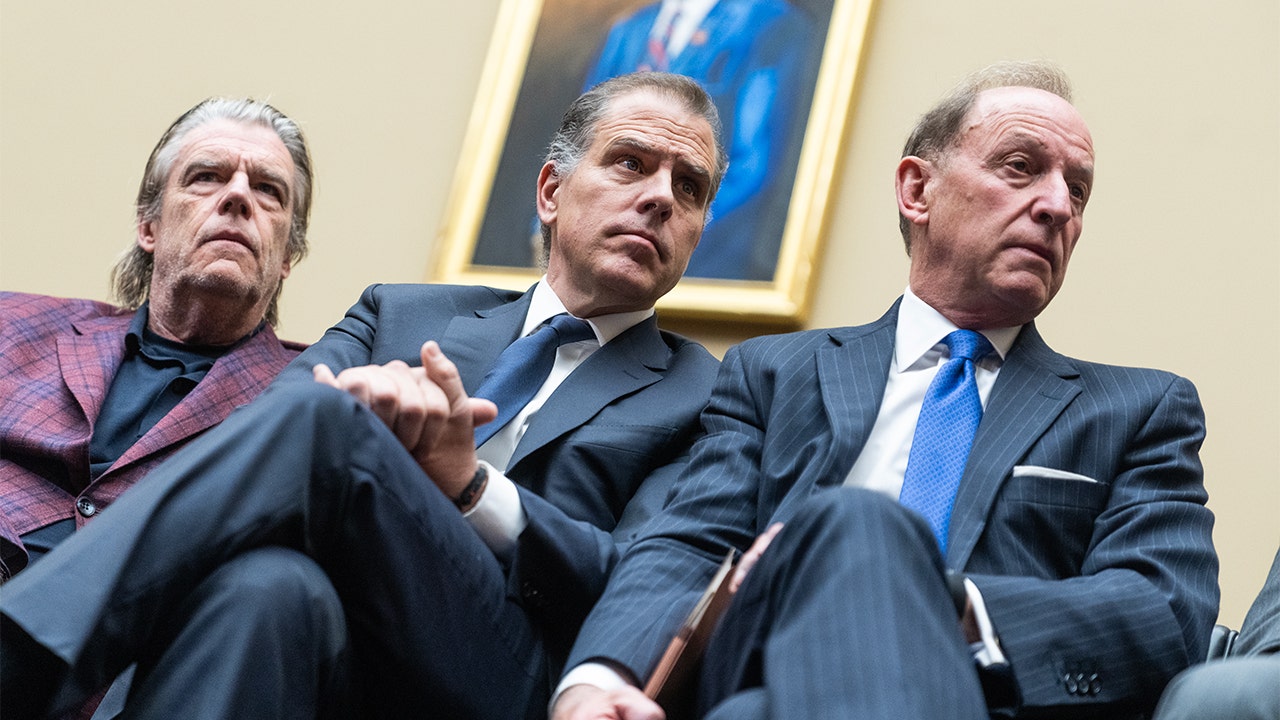World
EU mulls sanctions on violent Israeli settlers and Hamas leadership
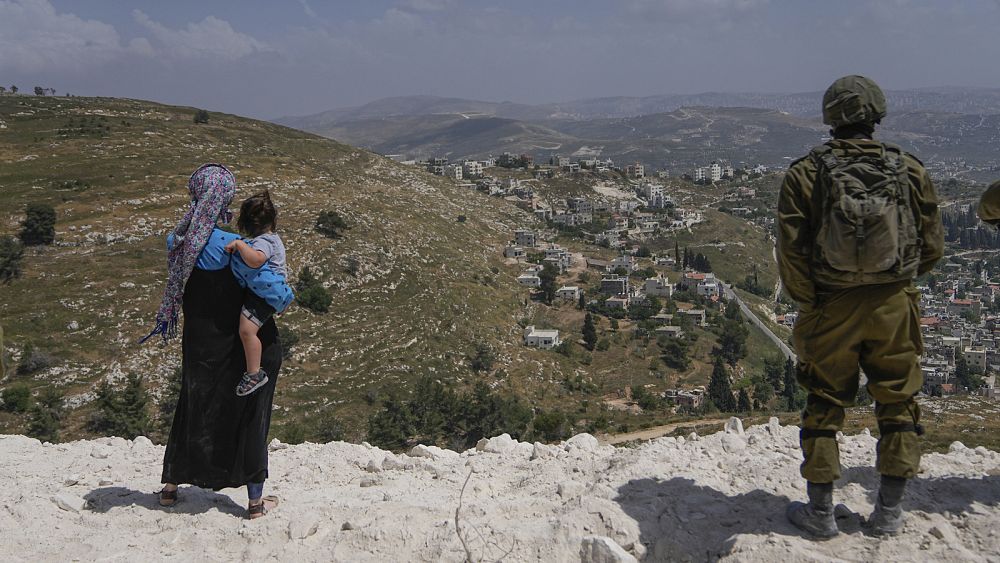
The European Union is mulling plans to sanction extremist Israeli settlers in the West Bank and toughen restrictions on Hamas’ military leadership, according to diplomatic sources.
Foreign Affairs ministers scheduled to gather in Brussels on Monday are set to discuss proposals by Josep Borrell, the High Representative for Foreign Affairs, to issue sanctions on extremist settlers in the West Bank including possible visa bans.
The EU has repeatedly condemned Israeli settlers’ attacks against Palestinians in the occupied West Bank but has steered clear of issuing sanctions. A fresh bout of violence by such settlers in the West Bank following the October 7 attacks commandeered by Hamas in which 1,200 Israelis were killed and 200 more taken hostage, has however brought the topic to the fore.
The “orientation note” issued by Borrell’s service, the European External Action Service (EEAS), and seen by Euronews, calls on member states to “explore EU reactions to settler violence in the West Bank”.
“This may include visa bans against extremists attacking civilians and the use of the EU human rights sanction regime,” it adds.
Israeli nationals can currently enter the Schengen Area — which comprises 27 EU and non-EU countries — without a visa for a maximum of 90 days within a 180-day period.
The note also urges the EU to “enforce continued, full and effective implementation of existing EU legislation and bilateral arrangements applicable to settlements products.”
Following a 2015 decision, Israeli products made by settlers in the West Bank are meant to be clearly labelled as such and subject to less preferential customs arrangements. But it is widely seen as poorly implemented.
A senior EU diplomat said Friday the plan was pitched to member countries “in the framework of preserving the possibility of a Palestinian state,” given that extremist settlers fiercely oppose the so-called two-state solution that the bloc sees as key to a peaceful resolution to the conflict.
“We have shared our idea with the member states that to preserve the integrity of the West Bank, we need to address the problem of violence,” the senior diplomat said,
“We have seen that the Israeli army has not taken due action against these illegal acts,” he added. In recent weeks, the bloc has hit back against proposals by figures within Netanyahu’s cabinet to continue funding for settler communities
The US has already announced it will deny visas to Israeli settlers responsible for undermining peace and security. Belgian Prime Minister Alexander De Croo also said this week that the country “will work with the US” and that “extremist settlers in the West Bank will be banned from entering Belgium”.
The note also calls for tougher sanctions against Hamas, which the EU considers a terrorist organisation, by tightening the screw further on its leadership and financing. It says member states should “consider the possibility of a standalone sanction regime”.
“Hamas is an organisation with quite a strong capacity to act. That needs financing, in particular, for its weapons. So it’s obvious that being only a terrorist organisation cannot be, apparently, reason enough for dissuading some people to finance Hamas,” the senior EU diplomat said.
“So we have to focus more on that, on technical issues, how it is financed,” he added, stressing that whilst Hamas’ financing operations were very different, the bloc’s past success in suppressing Daesh’s financing instruments sets a positive precedent.
A second option, another EU diplomat said on Friday, would be to extend the “Iran (sanction) regime to allow another type of designation.”
The Iran regime, the source explained, “concerns the restrictive measures taken within the framework of Iran’s support for Russia’s aggression against Ukraine, but whose scope could in fact be extended by including the notion of support, or participation from Iran to the regional destabilization.”
The US government estimates that Tehran funds Hamas to the tune of an estimated $100 million a year. Countries including Qatar and Turkey are also believed to fund Hamas indirectly.
EU sanctions have to be approved unanimously by the 27 member states and while new sanctions against Hamas could likely be rolled out before the end of the year, restrictive measures against violent Israeli settlers should prove much more difficult to hash out.
The discussions in Brussels on Monday will come just three days after two Hamas militants – Mohammed Deif and Marwan Issa, considered the plotters of the October 7 attack and among the most wanted men by Israel – were added to the EU’s terrorist list.
The individuals’ EU-based funds and assets will be frozen, and operators based in the EU will be prohibited from making economic resources available to them.

World
€440k frozen in Italy over suspect scam by fake farmers

Italian authorities issued a freezing order against group of farmers alleging EU farming subsidies were claimed for gardeners.
Three people connected to Italian businesses allegedly made bogus claims more than €375,000 in EU agricultural funds between 2020 and 2023, of which €65,000 has already been drawn from Italy’s payment agency.
The 368 hectares of farmland they claimed to own in order to receive the subsidies were not actually theirs, however, according to the authorities, belonging instead to the naval air station of Sigonella, for which the three suspects used to simply cut the grass.
“That is why they were not allowed to use it for agricultural activities, but only to carry out the grass mowing service,” said a press officer at the European Public Prosecutor’s Office (EPPO) which requested the seizure issued by the judge for preliminary investigations of the Court of Catania today (22 May).
The suspects are two brothers and another partner who took an active part in the alleged scam at a later stage. The brothers are familiar with farming, however, as one of the two actually owns an agriculture business while the other was employed by Italy’s Agricultural Assistance Centre.
This is the third large case involving freezing orders requested by EPPO – which investigates, prosecutes, and brings to judgment perpetrators of criminal offences harming the EU budget – involving Italy this year, leading to more than €3.7m assets being frozen in the past three months.
In 2023, a third of the open investigations related to fraud in the EU farming budget involved Italy, according to EPPO figures.
For Andrea Venegoni, European prosecutor for Italy, there are many reasons for the large number of agricultural fraud investigations in the country.
“First of all, there are many rural areas in Italy where EU funds are distributed to promote agriculture and rural development,” he told Euronews.
“It is also natural that where there is money, there is a potential for fraud. Hence, criminal organisations target EU funding programmes,” he added.
The prosecutor also highlighted the “extraordinary investigative skills” of the Italian financial and judicial police leading to fraud detection, combined with the activity of the European delegated prosecutors who worked effectively with the law enforcement agencies.
Fraud is not within the remit of the Commission’s action as the EU executive can only address administrative errors that may occur and correct the spending with audits – while the EU anti-fraud office (OLAF) is the body responsible for dealing with fraud cases, which may then be prosecuted by EPPO.
“The Commission has zero tolerance for fraud. We trust EPPO, and OLAF, to always investigate, follow up and prosecute fraud cases,” Commission spokesperson Olof Gill told Euronews.
“Since the assets of the alleged perpetrators have been seized with a judicial order, the EU financial interest is fully protected,” he added.
The Commission will be following developments of the case closely to see if the alleged crimes highlight weaknesses in the administrative control systems, the spokesperson continued.
World
How ‘The Good Doctor’ Series Finale Handled the Death of [SPOILER] — and Took Shape After a ‘Downsized’ Season 7
![How ‘The Good Doctor’ Series Finale Handled the Death of [SPOILER] — and Took Shape After a ‘Downsized’ Season 7](https://variety.com/wp-content/uploads/2024/05/TheGoodDoctor.MAIN_.jpg?w=1000&h=563&crop=1)
Spoiler Alert: The following interview discusses events from “The Good Doctor” series finale “Goodbye,” streaming on Hulu as of May 22.
If you’re looking for the right prescription for a solid series finale consisting of high emotional stakes, happy and sad tearful moments followed by a big dose of hope, then “The Good Doctor” delivered on all of those elements in Tuesday’s series finale, which wrapped up seven seasons on ABC.
The drama, which premiered on September 20, 2017, followed the journey of autistic surgeon Shaun Murphy (Freddie Highmore) as he grew from surgical resident not only to being a successful doctor at San Jose’s St. Bonaventure Hospital, but also a husband, father and friend to the colleagues he worked with over the years. In the series, created by David Shore and developed from the 2013 South Korean drama “Good Doctor,” Shaun’s autism often saw him face conflicts in which he was torn between logic and emotion with the show’s finale digging deep once again into that arena.
In the episode, Shaun is faced with two of his closest friends – mentor and father figure Dr. Aaron Glassman (Richard Schiff) and returning friend Dr. Claire Browne (Antonia Thomas, who left the series as a regular after its fourth season) – facing life or death situations that Shaun felt the utmost responsibility to solve. This dramatic situation for Shaun drove the show’s final hour, as the last few episodes efficiently locked down happy endings for several cast members like colleagues Dr. Morgan Reznick (Fiona Gubelmann) and Dr. Alex Park (Will Yun Lee) finally being wed in last week’s episode.
Shore and executive producer Liz Friedman helped us dissect the show’s last episode, including how the shortened 10-episode final season impacted its conclusion, why Claire was the past cast member they chose to bring back and how they handled the death of Glassman in the episode — while keeping an upbeat end.
Once you found out the show would be ending after Season 7, did it change the end point you had been thinking about, or did you know this was coming so had time to plan?
Liz Friedman: I had planned for a season ender that either was in the ballpark of something that could wrap it up, or there were certain ideas I had of that if you included this little thread, it could launch into next season. I knew [the show ending] was a possibility. I was trying to keep everyone’s options open for as long as possible. I’m sad the show is ending, but I’m glad that we had enough notice. We were able to adjust, and do a true finale. I’m very happy with how we wrapped up the show.
Were there any adjustments you needed to do just because of the writers strike, with fewer episodes for the season?
Friedman: No, that was not in the planning. I mean, part of going through the writers strike was a repeated calculation of how many episodes we could do if it ended next week. And it was hard, honestly, because even when we came back, we had the ability to do 15 [episodes]. ABC initially said, no, we only want 13 and then that number got reduced to 10. But we figured it out, and downsized our story to make it work for that many episodes.
Did either of you go back and watch the pilot in preparation for this final episode?
David Shore: Yeah, we did. Liz watched right away, and told me I should watch it, too. I was going to watch it anyways, but she just said, “Yeah, it’s really good.”
Friedman: We had also watched it for when we did “The Good Lawyer” spinoff [last year]. There are definitely moments that refer back to [the pilot]. Honestly, it was a bit of an accident, but we came up with the story, and then I took a look at the Season 1 finale, which was really about Shaun learning that Glassman had cancer. And those two stories speak to each other quite a bit in a way that really pleases me. It really gives a very good measure of Shaun’s progress over the course of these seven years.
How much did Freddie Highmore weigh in on the finale and how things wrapped up? Was he involved with a lot of the choices?
Friedman: Freddie’s great in that. Over the past few years, I talked to him as I get the next section of stories and I talk him through what’s coming, and he’s a writer’s dream audience. He says, “Oh, that sounds good,” and then he throws in a, “Oh, that sort of reminds me of this…” He’s such a dream to work with. We would go through every script with him, and he asks us about any things he wants to change. And almost every change he wants to make makes the script better.
As a viewer, the show’s true love story is Shaun and Glassman, especially with how that relationship has unfolded and where it ends up in at the end of Season 7. Has that always been in the forefront of your minds, as well?
Shore: Certainly that relationship has been absolutely essential to the show from day one, and it was the one constant to the show throughout, adding to the sadness at the end. But it’s very much a father-son relationship, and we were aware of that right from the beginning and we wanted to play that out to the end. The role of a father and handing that off, and getting your child ready for the world.
Let’s talk about the finale with this conundrum that Shaun is in with the lives of both Glassman and Claire at precarious points. Can you talk about crafting that story?
Friedman: We found this medical story about microphages, and that seemed like a very interesting one to tell. From there, we had been thinking about the idea of having Claire return, and that we’ll have her come back for a relatively mundane medical procedure in [the May 14 episode] and then it will fan into this great mystery in the second [episode]. That worked very well to have Claire at the center of both a dramatic medical story, but also have her comment on all the change that’s happened in these people she’s known.
The Glassman story that we were going to have his cancer come back had been brewing for a while. What ended up working out really nicely was to be able to have the finale and have the two patients be characters that were a key part of our cast. That really allowed us to just keep the focus on what the audience wants, rather than trying to introduce an outside patient.
There are a lot of people from the show’s past that you could have brought back. Did you consider bringing some other people back, and how did you settle on Claire?
Friedman: There had been talk about bringing another character back that wasn’t possible, and that really sort of set up that it should be clear and we should really focus on Claire. Although, Perez [Brandon Larracuente] does make an appearance at the end.
Shore: But we didn’t want it to just be somebody coming in for a cameo and saying goodbye. We wanted to bring them back and utilize them properly.
It was a nice twist that Glassman steps in to do this unapproved procedure to save Claire so Shaun wouldn’t have to jeopardize his career. But would you say he’s saving Shaun one more time, or is he thanking Shaun for everything he’s done for him? I kept going back and forth on that.
Friedman: How did you see it, David?
Shore: He’s doing one last gesture for Shaun. Shaun cannot give up being a doctor. Shaun deserves to be a doctor. We wanted Shaun to be ready to fully sacrifice himself and we wanted Glassman to recognize, ‘no, I have to sacrifice myself for Shaun.’
How about you, Liz?
Friedman: Yeah, much the same. I think it’s definitely a mitzvah because what Shaun has accomplished is quite amazing and Glassman has been a key part of that. So this was really a sacrifice that allows Shaun to keep utilizing a pretty miraculous gift that he has in terms of his ability as a doctor.
Shore: I should add that, speaking of thanks, there was more dialogue in that scene at one point and it all worked very nicely, but in editing it all just got boiled down to the thank you. Shaun has so much to thank Glassman for, and they’ve reached a point that they had trouble reaching where Shaun is no longer fighting against Glassman. He’s just accepting Glassman.
Friedman: You can tell that David has moved into director mode, because he’s advocating for less words, but I totally agree. In fact, I was the one who said, “I think we should just make it that — that’s all we have to say.”
Was there ever a scenario when you thought you might have more episodes or more time and would actually see Glassman die and you could do the funeral? Or was that never something you wanted to touch?
Friedman: In a different scenario where there are more seasons of the show? Yeah, I would say that’s distinctly a possibility.
Shore: I remember thinking on the day when we were doing that carousel and that moment where Shaun’s alone on the carousel. It was about Glassman dying but the larger thing was about the end of the relationship and that Shaun is going to be OK. We shot at that carousel many seasons ago.
Shaun in the future giving a TED Talk was a great way to start seeing where he and everyone else end up. How did that scenario come to the episode?
Shore: I don’t know where it started from, but I know it wasn’t me. I just heard about it. That’s a good idea.
Friedman: I actually think it came out of when Freddie and I were talking at one point. It was before they had decided that it was going to end at 10 [episodes], but it had started to form in our minds of what would the ending be? And Freddie talked about Shaun standing up and giving a speech and he talked about it in the context of it being a nod to the pilot, that there’s that whole great section in in the boardroom. Glassman gives this great speech, and ultimately Shaun gives his great speech.
From that, I was thinking about speeches and trying to think about a context that suggested where Shaun had landed [in the future] and then I said, “Oh, OK, it’s a TED talk.” What I think is interesting is then independently, David came up with the idea of Shaun going back to the room where he did, in fact, that speech in the pilot, so that all the roads kept connecting to the beginning.
The names that are scrolling as Shaun is giving the TED talk, were those actual patient names from the show, or was there another significance to those names?
Shore: Actual patient names from scripts past. We did 126 episodes, so there’s a theoretically 1500 names on that list.
Friedman: And the first name that comes up, Adam, that’s the boy Shaun saved in the pilot.
In the last moments, after the TED talk and the entire cast has gathered and embracing, was that the last scene you shot for the show?
Shore: I wish it had been, in some ways, but we would have never gotten through the day. So scheduling stuff prevented that, but we were well aware of it as we were shooting it, and it was a rough time in that regard anyways. But it was lovely. It was actually really nice.
This interview has been edited and condensed.
World
Rare tornado hits Haiti, injuring more than 50 people and leaving hundreds homeless

A rare tornado in northern Haiti has injured more than 50 people and destroyed more than 200 homes, the U.N. said Wednesday.
HAITI’S MAIN INTERNATIONAL AIRPORT REOPENS NEARLY THREE MONTHS AFTER GANG VIOLENCE FORCED IT TO CLOSE
The tornado hit the community of Bassin-Bleu on Tuesday, leaving more than 300 families homeless, according to the U.N. Office for the Coordination of Humanitarian Affairs.
A rare tornado in northern Haiti has injured more than 50 people and destroyed more than 200 homes. (Photo by THONY BELIZAIRE/AFP via Getty Images)
The office noted that at least 10 people are seriously injured, with local media reporting they were hospitalized.
The office said Haiti’s civil protection agency and the Red Cross were the first responders and are evaluating the damage.
The civil protection agency said heavy rain is expected for most of Haiti, including the area hit by the tornado, warning of possible flooding and landslides.
-

 News1 week ago
News1 week agoNevada Cross-Tabs: May 2024 Times/Siena Poll
-

 World1 week ago
World1 week agoPro-Palestinian university students in the Netherlands uphold protest
-

 Politics1 week ago
Politics1 week agoWhite House walks diplomatic tightrope on Israel amid contradictory messaging: 'You can't have it both ways'
-

 Politics1 week ago
Politics1 week agoDem newcomer aims for history with primary win over wealthy controversial congressman
-

 Politics7 days ago
Politics7 days agoSouthern border migrant encounters decrease slightly but gotaways still surge under Biden
-

 World7 days ago
World7 days agoSlovakia PM Robert Fico in ‘very serious’ condition after being shot
-
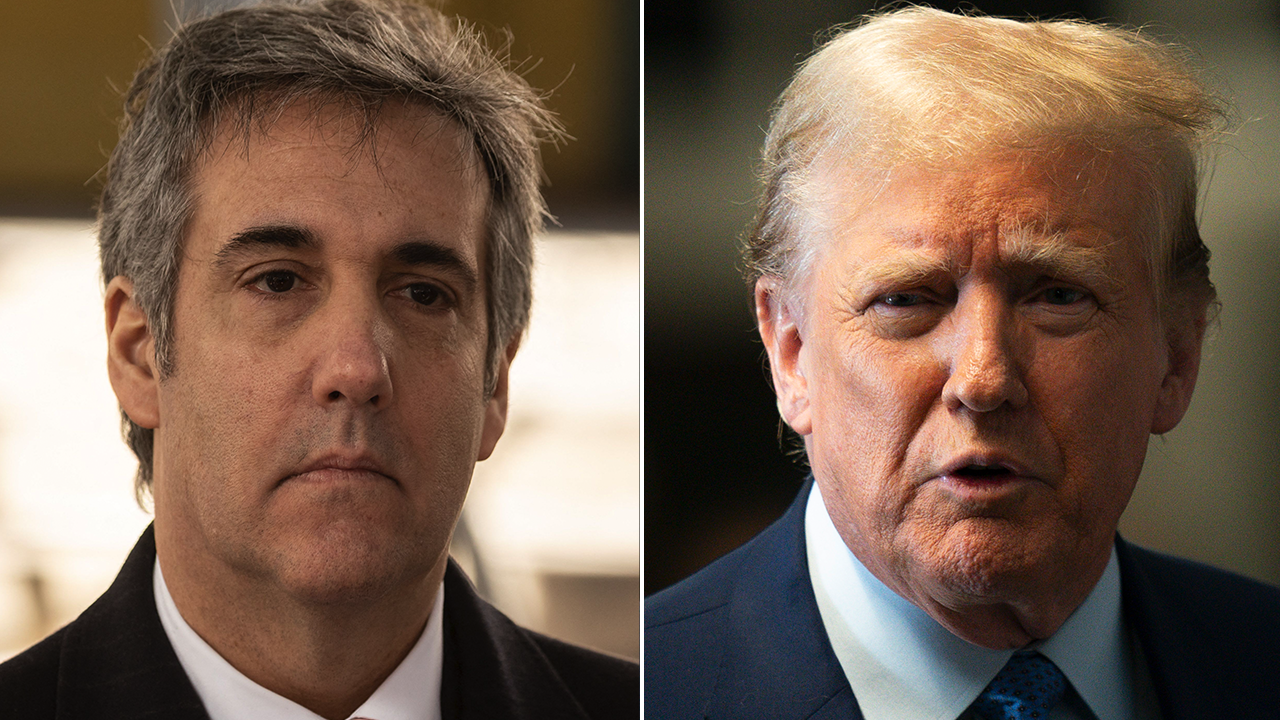
 Politics1 week ago
Politics1 week agoNY v. Trump trial resumes with 'star witness' Michael Cohen expected to take the stand
-

 Politics1 week ago
Politics1 week agoReports of Biden White House keeping 'sensitive' Hamas intel from Israel draws outrage


